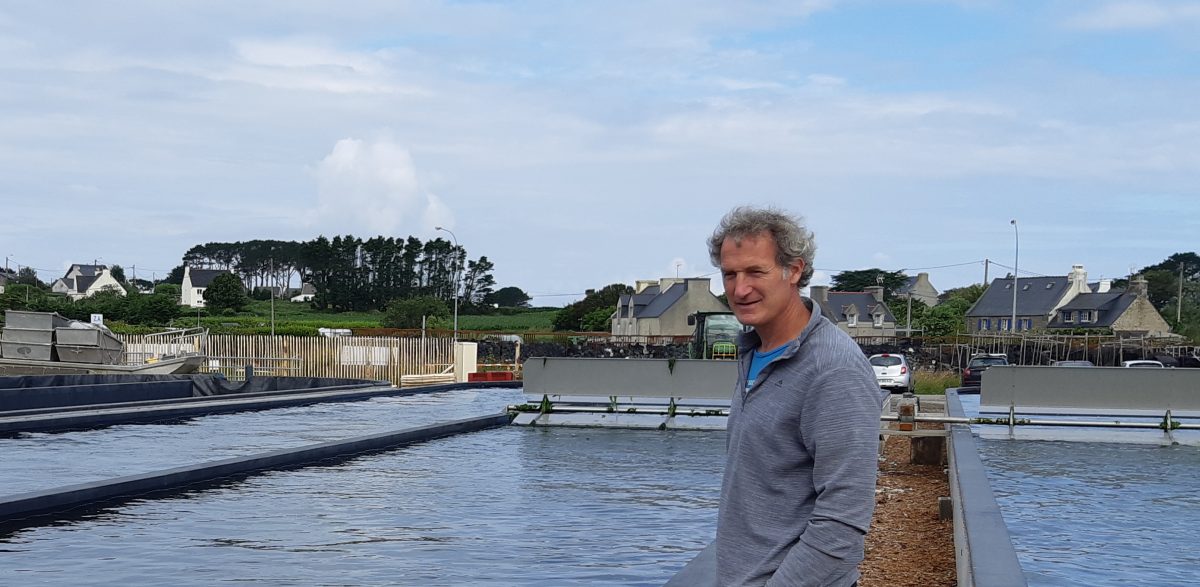Specialising in abalone farming, France Haliotis invests in land-based seaweed farming
- Located in Finistère, France Haliotis harvests seaweed in the natural environment and has concessions at sea to feed its shellfish. In addition, there are now 6 seaweed cultivation tanks on land, which also offer new prospects for the company.
Objective: Secure abalone feed and diversify
At the beginning of July, on the occasion of the 10th anniversary of the IDEALG project, France Haliotis inaugurated new equipment for the cultivation of seaweed in soil.
The 6 tanks, each with a volume of 200 m3, will allow the production of up to 50 t of algae per year. They required heavy investments (300 k€), supported in particular by the European Fund for Maritime Affairs and Fisheries (FEAMP).
These basins are home to ulva, the preferred food of abalone. With this new management tool, the company has a complementary and continuous trophic resource, particularly when conditions at sea are difficult. Another advantage is that tank culture provides a better trophic yield for the abalone, as these algae have a higher protein content than algae in the natural environment.
But the founder of France Haliotis, Sylvain Huchette, is also looking to the future and exploring diversification possibilities. Surplus seaweed production could be sold to the food and cosmetics industries. Restaurant owners, who already enjoy cooking abalone, could also be supplied with seaweed. Cultivation of Palmaria seaweed will begin in the autumn.Facilities open to services and collaborations
Sylvain Huchette set up his own company after his doctorate. He was therefore naturally involved in collaborations with researchers and participates in numerous projects within regional consortia (POLISTR and HOLOFARM projects labelled by the Pôle mer Bretagne Atlantique for example) or European projects (AquaVitae project). The equipment is also made available to companies as part of services.

Find out more about the facilities and services of France Haliotis on the Marine research infrastructures and facilities portal:
- Keywords : <a href="News_Infrastructures-3046-0-0-0.html?b3338_TAGs_57=717">#CampusInfras</a>, <a href="News_Infrastructures-3046-0-0-0.html?b3338_TAGs_57=315">algae</a>, <a href="News_Infrastructures-3046-0-0-0.html?b3338_TAGs_57=100">Algues</a>, <a href="News_Infrastructures-3046-0-0-0.html?b3338_TAGs_57=837">amti</a>, <a href="News_Infrastructures-3046-0-0-0.html?b3338_TAGs_57=537">aquaculture</a>, <a href="News_Infrastructures-3046-0-0-0.html?b3338_TAGs_57=579">expertise</a>
- Published on 23/08/2021



